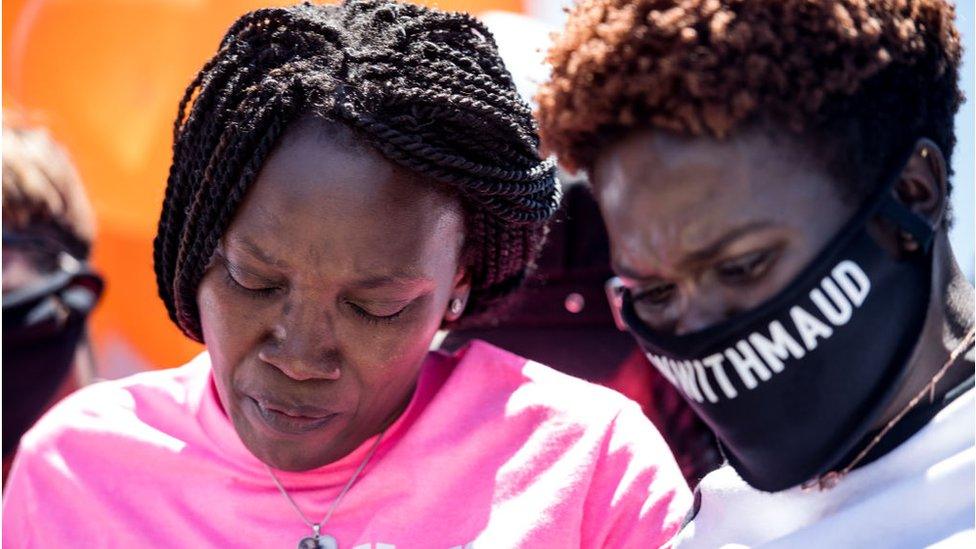George Floyd death: MOBO boss says comments on racism in music 'dismissed'
- Published
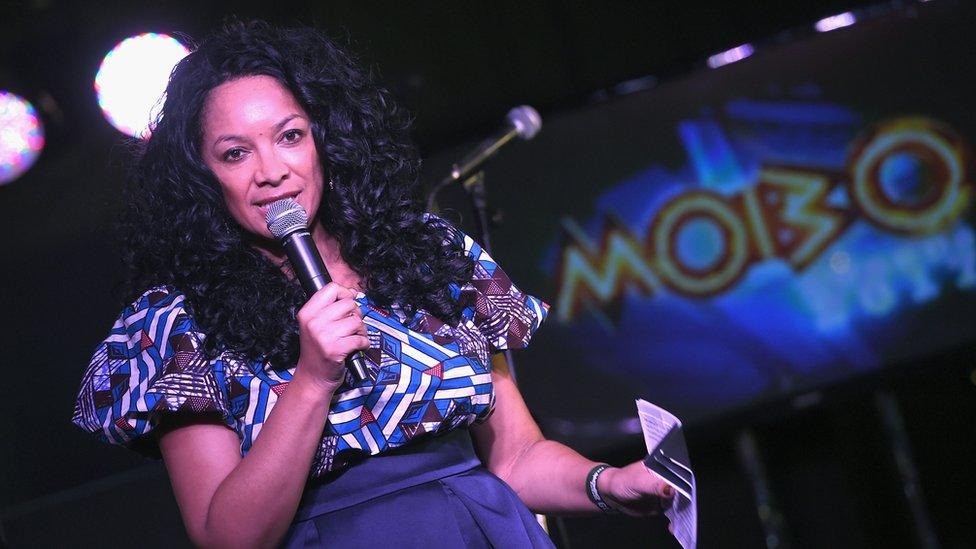
"The conversation around racism is a very important one to be having - one I have unfortunately been having for a very long time."
That's Kanya King, the founder and CEO of the MOBO organisation.
MOBO launched its awards show in 1996 to celebrate music of black origin and the culture that surrounds it.
Kanya tells Radio 1 Newsbeat although protests following the death of George Floyd feel like "a watershed moment", there's still "a long way to go".
'Fighting injustice since day one'
"It's very painful to watch what happened to George Floyd," Kanya says.
"I can't help but think of my son and my brothers, all who have tackled discrimination."
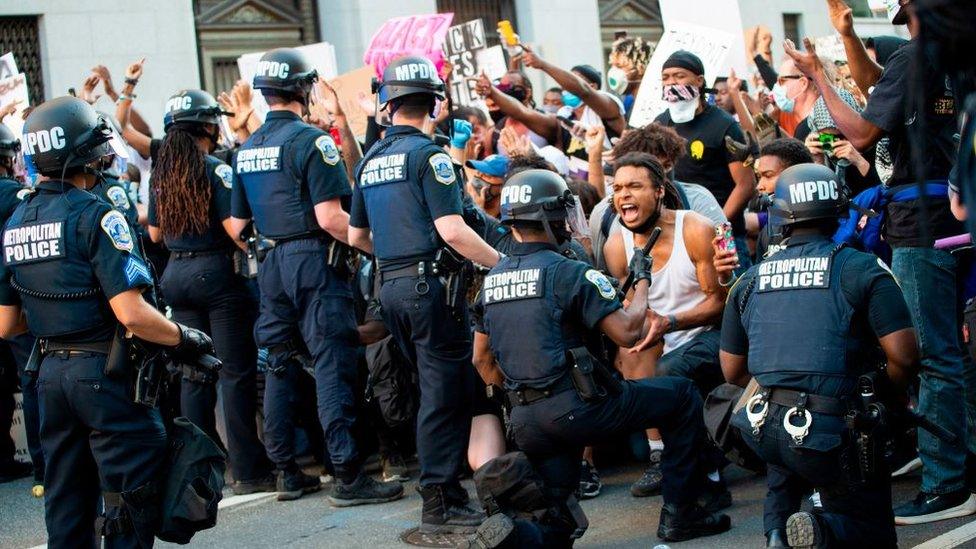
Protests in Minnesota, where George Floyd was killed, have inspired similar rallies around the world
Kanya says the mass gatherings that have followed the killing of the unarmed black man are "symptoms of long-held frustrations" and that "such little confidence in the police system has to change".
However, she says that even though "we're seeing changes here and there" it will take "collective efforts" across society, not just from those protesting to make significant change.
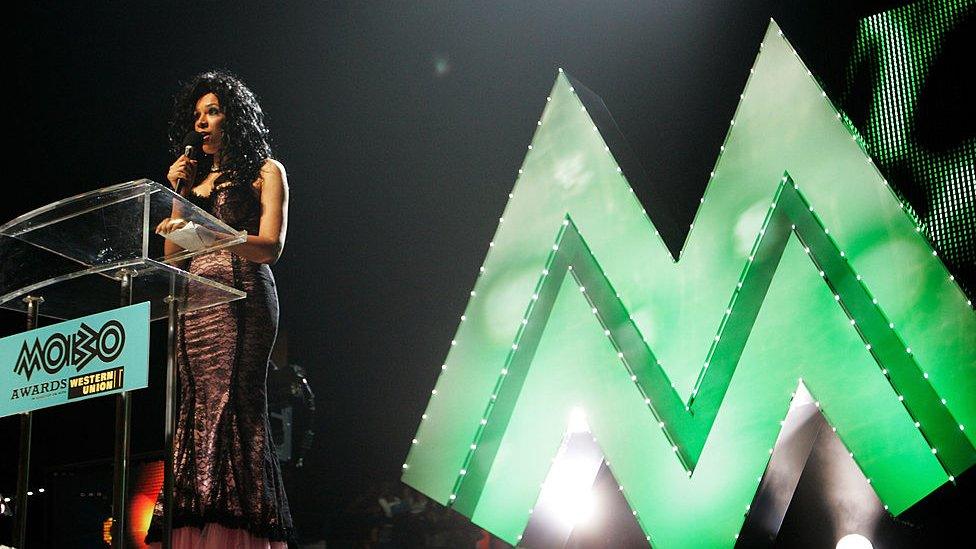
Kanya says it was difficult to be taken seriously in the music industry
The MOBO boss explains that "since day one" her organisation "has been fighting injustices".
"When I first started talking about racism in music, my comments were completely dismissed - I was ostracised," Kanya says.
"The powers that be even wanted to get rid of us [black people] all together, as we were seen as 'difficult'."
She hopes sharing her story will help encourage "leaders across all industries" to play a bigger part in "openly talking about social inequality and discrimination".
"In doing so they will empower others and help build a more inclusive and coherent society where everyone can progress regardless of the background or the colour of one's skin," she adds.

What is #BlackOutTuesday?
As part of those efforts, Kanya and her team at MOBO are backing what's being referred to as #BlackOutTuesday.
It's an online campaign started by the music industry to reflect on how it can bring about change in the fight against racial inequality.
Employees across all three major record labels in the UK and other influential companies in the industry have been given "a day of action," intended to "disconnect from work and reconnect with our community".
Allow X content?
This article contains content provided by X. We ask for your permission before anything is loaded, as they may be using cookies and other technologies. You may want to read X’s cookie policy, external and privacy policy, external before accepting. To view this content choose ‘accept and continue’.

Record labels are promising to use this day to educate team members about white privilege, encourage change and work on improving interactions and behaviour across the industry.
Platforms likes of Spotify, Apple and BBC Radio 1Xtra have dedicated the day to delivering "special programming in support of the Black community" through playlists and on air discussion.
MTV will stop broadcasting for eight minutes - the length of time a white police officer knelt on George Floyd's neck before he died.
In some cases, people have posted a black square on their timeline on Instagram.
Allow X content?
This article contains content provided by X. We ask for your permission before anything is loaded, as they may be using cookies and other technologies. You may want to read X’s cookie policy, external and privacy policy, external before accepting. To view this content choose ‘accept and continue’.

But some have warned that using the #BlackLivesMatter hashtag is "preventing useful and helpful information getting though" and others saying that silence isn't helping.

Kanya King says it's great to see people in the music industry using their platform as part of an ongoing conversation in "speaking out against racism injustice, oppression and inequality".
"MOBO will continue to champion equality in all that we do."


Follow Newsbeat on Instagram, external, Facebook, external, Twitter, external and YouTube, external.
Listen to Newsbeat live at 12:45 and 17:45 weekdays - or listen back here.
- Published2 June 2020
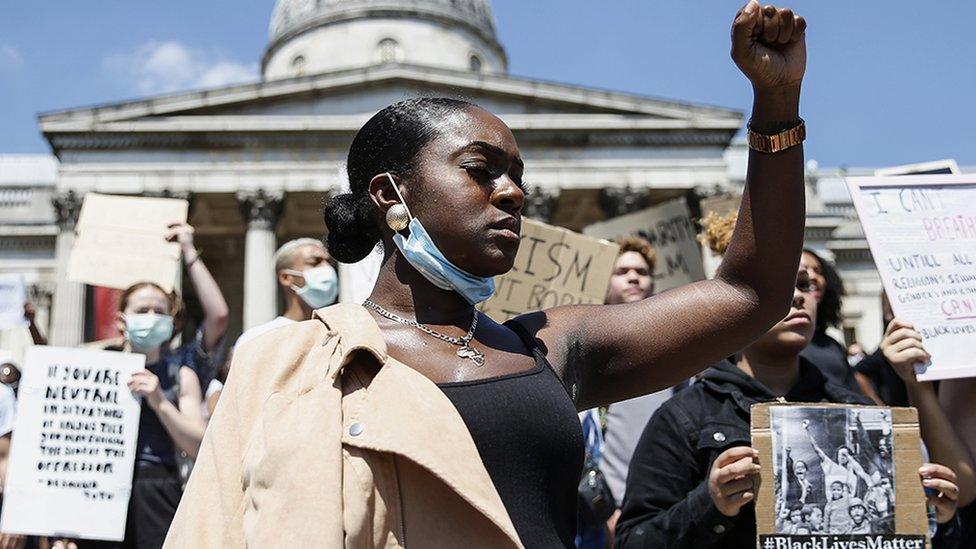
- Published13 May 2020
